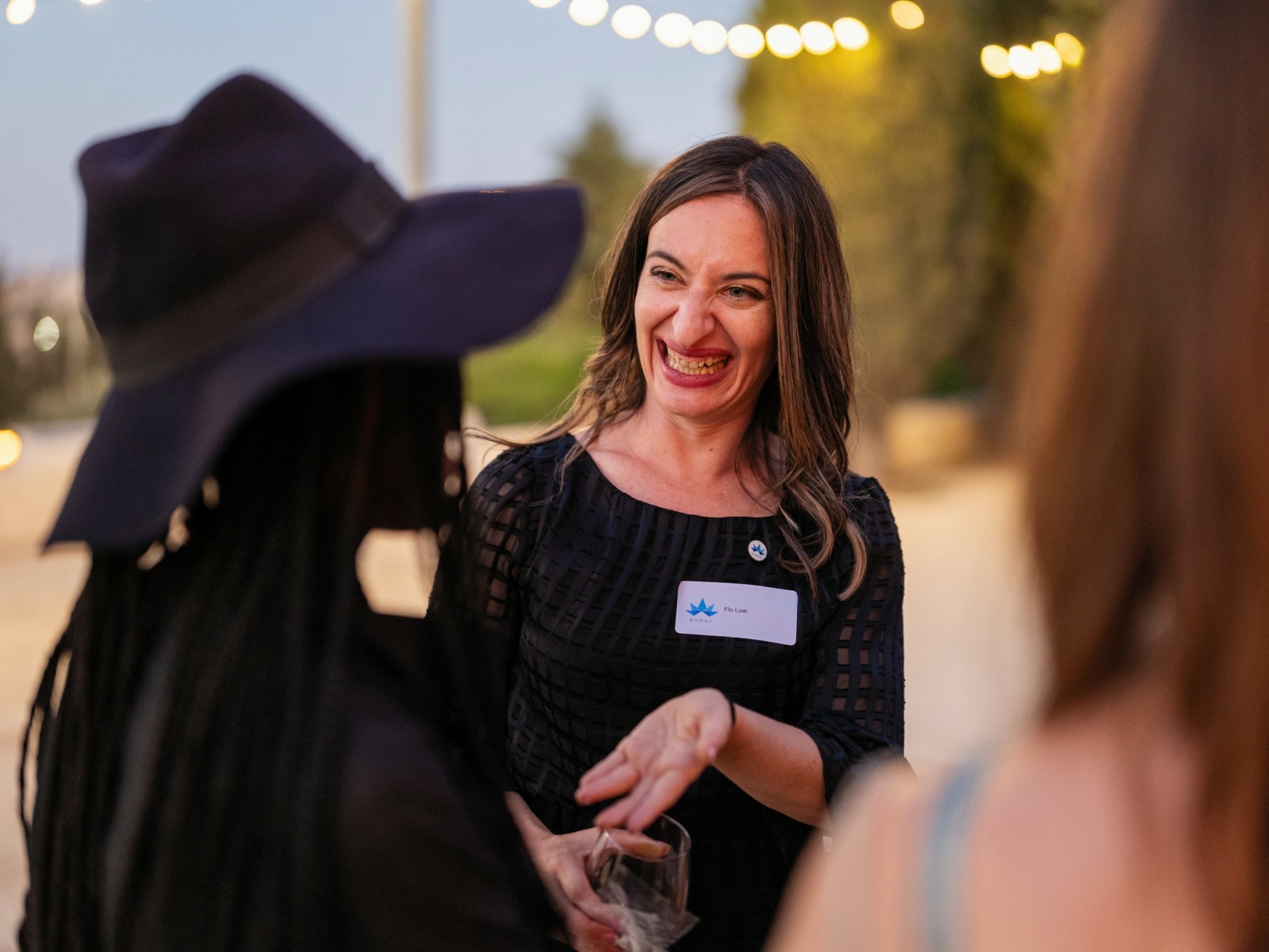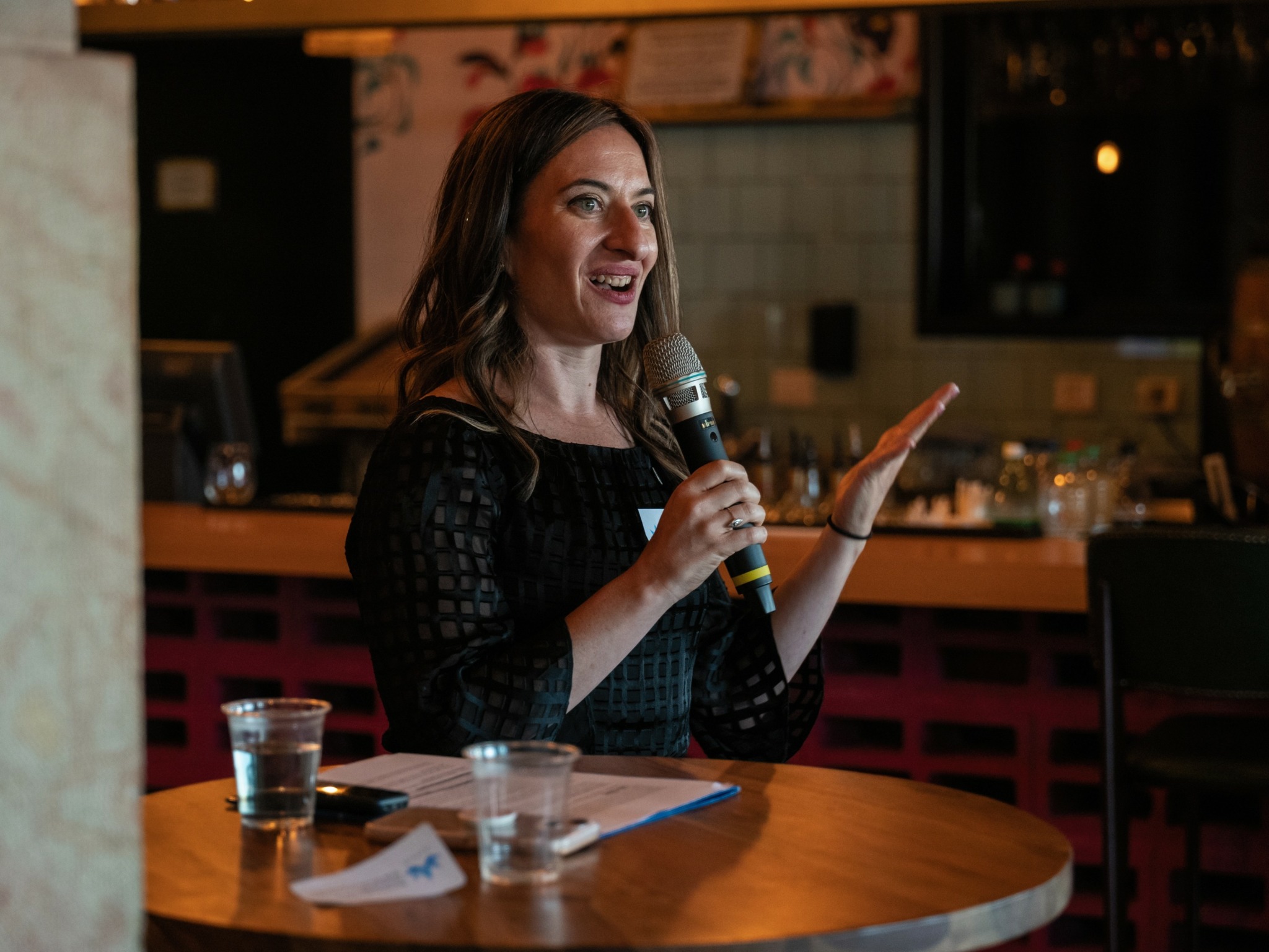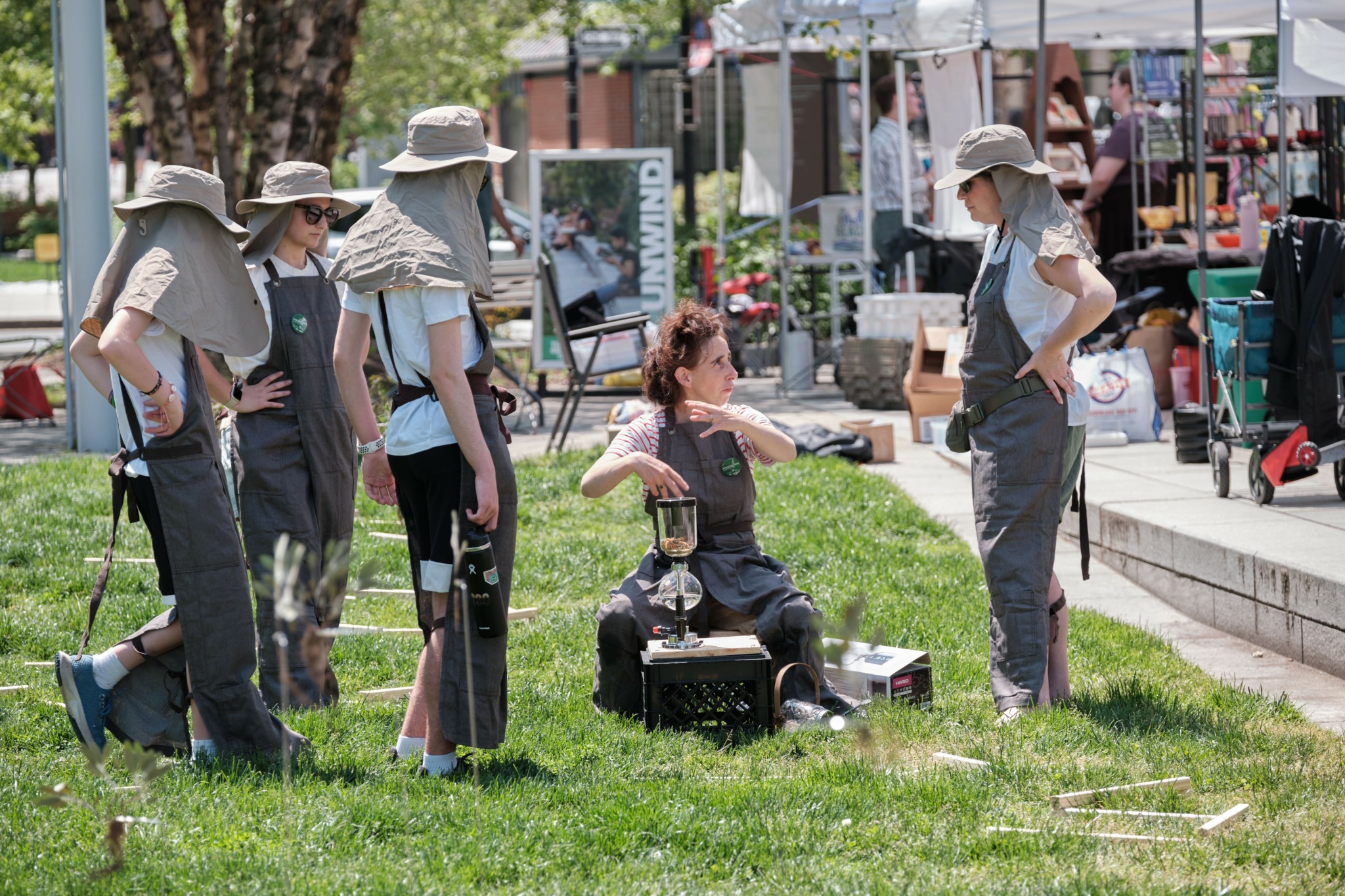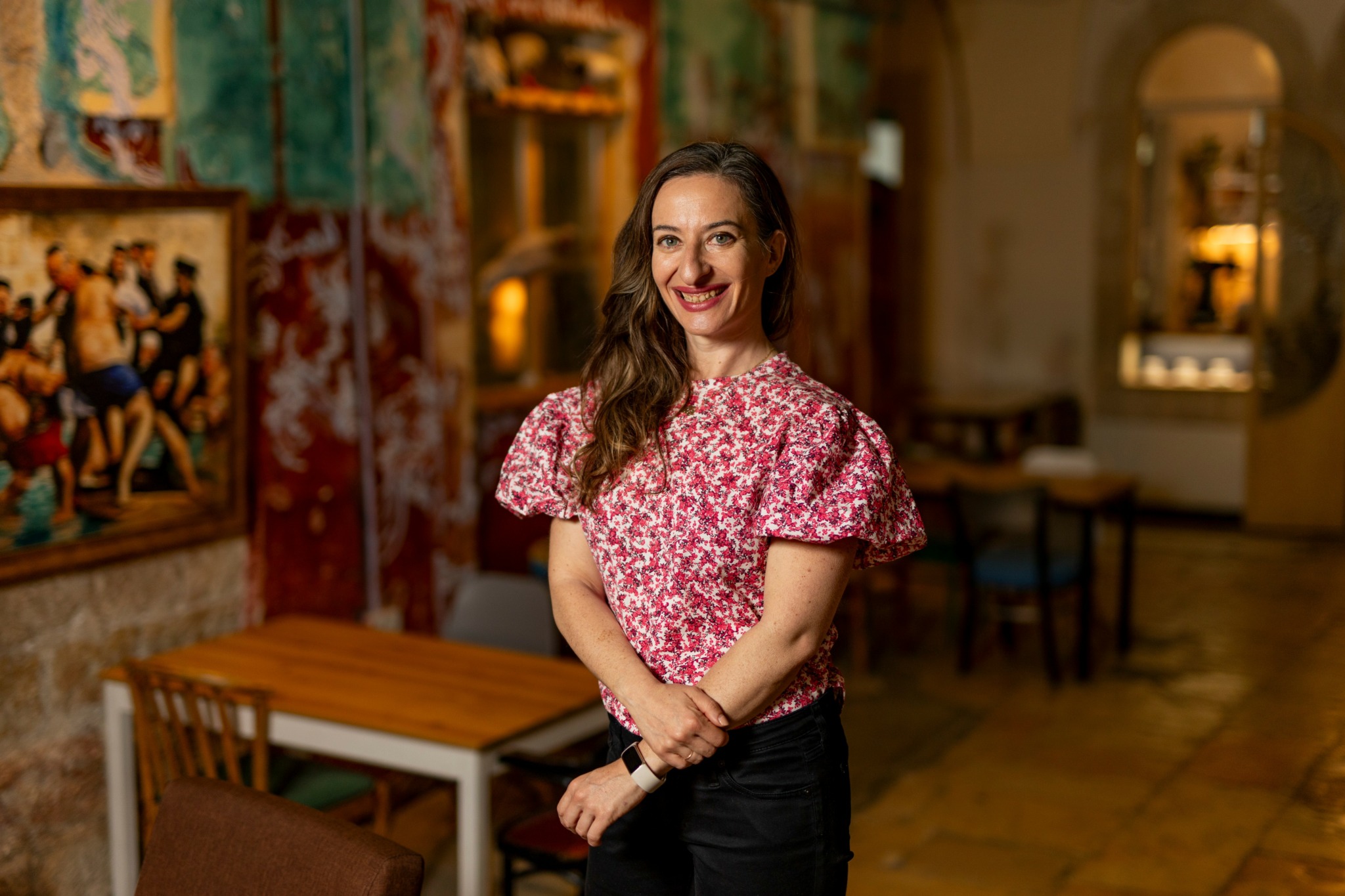We’re excited to introduce you to the always interesting and insightful Flo Low. We hope you’ll enjoy our conversation with Flo below.
Hi Flo, thanks for joining us today. Are you able to earn a full-time living from your creative work? If so, can you walk us through your journey and how you made it happen?
In the middle of the pandemic, my Executive Director shared news that would forever alter the trajectory of my career: after two years managing a program for this organization, they had decided to invest in me, and spin my work into an independent non-profit. Over the next two months, I vacillated between absolute glee, and sheer terror. I loved my work as a program director, but I yearned for more independence and creative freedom. I needed the push, and it was a push in the right direction that unleashed my true potential.
I quickly learned that mindset is everything. At first, I was working slowly while applying to “safe,” familiar gigs. Then, when I was a finalist for a full-time position and was tasked with preparing a fundraising pitch, I realized I could invest that time and effort on them – or on me. That was the moment I realized I needed to be all in and, not surprisingly, that was also when things started to snowball forward. I started to talk differently – instead of saying “if I launch this organization,” or “if I raise the money,” I talked about BAMAH as if it already existed – and so it did.
The next step was understanding that to be “all in” meant creating an organization that reflected the values I wanted to see and advance in the world – not just in the work we do, but also in the policies and infrastructure and culture we build around it.
There are still days where I feel like I’m faking it. But now I understand trial and error are part of the process; prototyping and pivoting drive sustainability and success; and manifesting cultural change is a full-time, long-term journey comprised of both huge, thrilling leaps, as well as small, thoughtful steps.

Great, appreciate you sharing that with us. Before we ask you to share more of your insights, can you take a moment to introduce yourself and how you got to where you are today to our readers.
Growing up as an outspoken Jewish girl in the Midwest, I understood early on what it meant to be an outsider and the importance of creating community. That understanding shaped my passion for the intersection of arts and social change. Through BAMAH, I facilitate cultural experiences that engage diverse audiences, spark meaningful conversations, and deepen cultural connections. While the organization is national in scope, our work is impactful because it is always implemented in partnership with local community organizations, and in service of their priorities and goals. Every partnership—whether through campus residencies or community collaborations—builds long-term, trust-based relationships that yield measurable cultural impact and create a lasting legacy against divisive narratives.
BAMAH reflects the meeting point of my deepest values—leveraging the unique capacity of art and artists as tools to promote dialogue, foster understanding, and build bridges between people. We stand alone in our dual-purpose approach: driving authentic cultural exchange while serving as a vital safeguard for the Black-Jewish American relationship. Through strategic campus partnerships and long-term artist residencies, BAMAH prevents and interrupts antisemitism and racism by fostering humanizing, trust-based interactions.
Over the past several years, BAMAH has created space for people from diverse backgrounds and identities to engage with complex emotions and difficult conversations. We aspire to a world where dialogue becomes the norm, bolstering empathy to eradicate polarization. Whether through a participatory event centered around the act of confession that invited audience members to be radically honest and vulnerable, or the upcoming pilot Collegiate Festival of Black-Jewish Arts, we produce events that serve as vehicles for genuine human connection, breaking through stereotypes to foster nuanced understanding and lasting relationships. Through these unique arts engagements, BAMAH fosters dialogue in places where it’s often missing, proving that the arts don’t just reflect the world—they actively shape it.

Can you share a story from your journey that illustrates your resilience?
One of BAMAH’s most unique programs featured an artist whose work centers on cultivating radical honesty and vulnerability, to offer collective healing and connection. The work intentionally, thoughtfully, and bravely brings together performers of diverse backgrounds and identities, to model the kinds of conversations that are possible in a space of curiosity and non-judgement.
After weeks of planning a campus tour and carefully recruiting, selecting, and training the cast, we were informed that the PhD arts students we were traveling to engage were unwilling to enter the room based on the one thing they knew about the lead artist: his country of origin. They knew nothing else about his identity, his politics, or about the other artists who would be sharing the stage.
Like our company, those students had the opportunity to model dialogue and compassion. They had the opportunity to demonstrate that human beings have the capacity for connection and understanding. To share space and to listen to one another. To participate in a moment of healing. Instead, these advanced students of the arts chose silence over conversation; ignorance over curiosity; close mindedness and division rather than open heartedness and engagement.
I was proud of our company and, in hindsight, glad we didn’t try to engage an audience who wasn’t open to the generosity and brave conversation we were offering. But I was heartbroken we couldn’t realize and model this opportunity for authentic dialogue.
True artists are conveners who set the stage for collective action; connectors who provide a platform for people to bridge their differences and bond through their similarities, and catalysts for conversation, even when the issues at hand are polarizing. True artists are leaders who elevate our individual and shared humanity; break down barriers; offer us moments of transcendence, and show the greatness of which we are capable when we are truly present, and when we show up.
As the sage Rabbi Hillel said, “In a place where people are not being human(e), be human(e).” This is the work I am proud to do, and will continue to do, even if not especially when it is difficult – producing transformative arts experiences that center our shared humanity, break our hearts back open, and elevate our highest potential.

Is there something you think non-creatives will struggle to understand about your journey as a creative? Maybe you can provide some insight – you never know who might benefit from the enlightenment.
As arts professionals, I think we sometimes take for granted the value and impact of the arts. If we are to convey the importance of our work to non-creatives, we must get better about articulating the tangible impacts. At BAMAH, that means steeping our work in international research on the three dimensions that drive effective intercultural dialogue and exchange – a method we conveniently call TEA: Teaching, Empathy, and Action. Through artist-driven initiatives that provide nuanced information and knowledge; creative experiences that touch on deep emotions and drive empathy, and immersive events focused on joint action, we are building a more cohesive society that can withstand and celebrate individual difference while giving members of communities the tools to work together to advance their shared goals.
Evidence shows art provides space to support diverse viewpoints that counter hate speech, and tools to dispel ignorance, misunderstandings, and false beliefs, while engagement in the arts supports healing and positive connections, active and engaged citizenship, and drives a more cohesive and socially prosperous society. Also, since artists and creatives think differently and approach problems in different ways, involving artists is crucial in implementing impactful programs that transform systems and solve pressing social issues. We creatives need to make sure we frame our work not as a luxury, but a necessary driver of healthy, thriving community life.
Contact Info:
- Website: bamaharts.org and theflolow.com
- Instagram: bamah_inc and theflolow
- Linkedin: https://www.linkedin.com/in/flolow/

Image Credits
First photo – Naama Stern, Makor Rishon
Three additional photos (speaking, group) – Gilad Bar-Shalev
Fourth photo (outdoors) – courtesy of JArts


